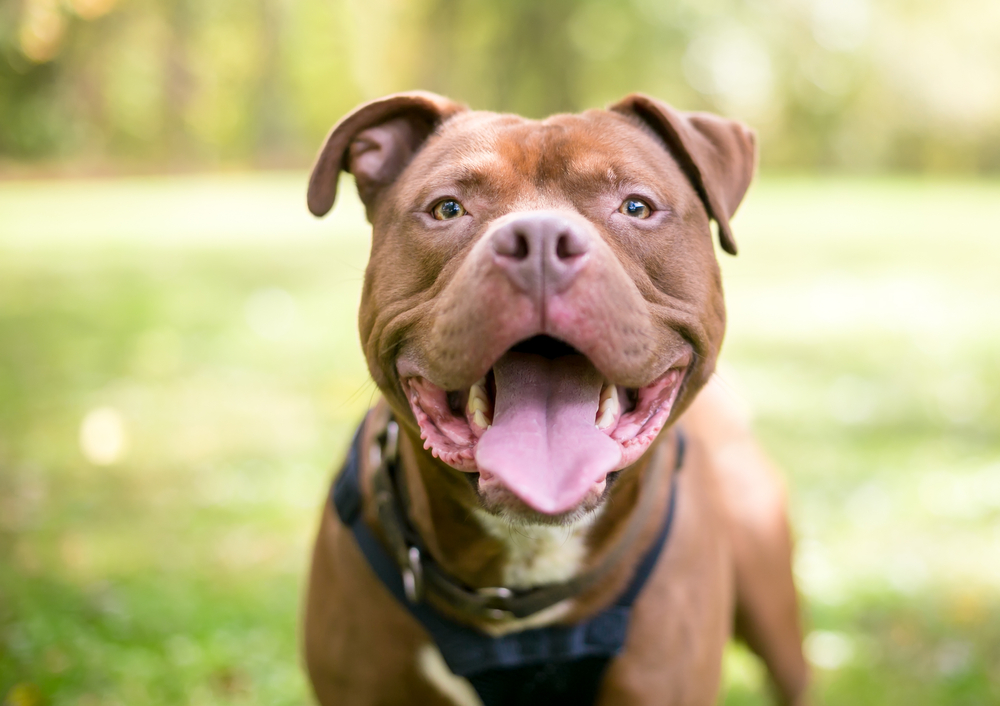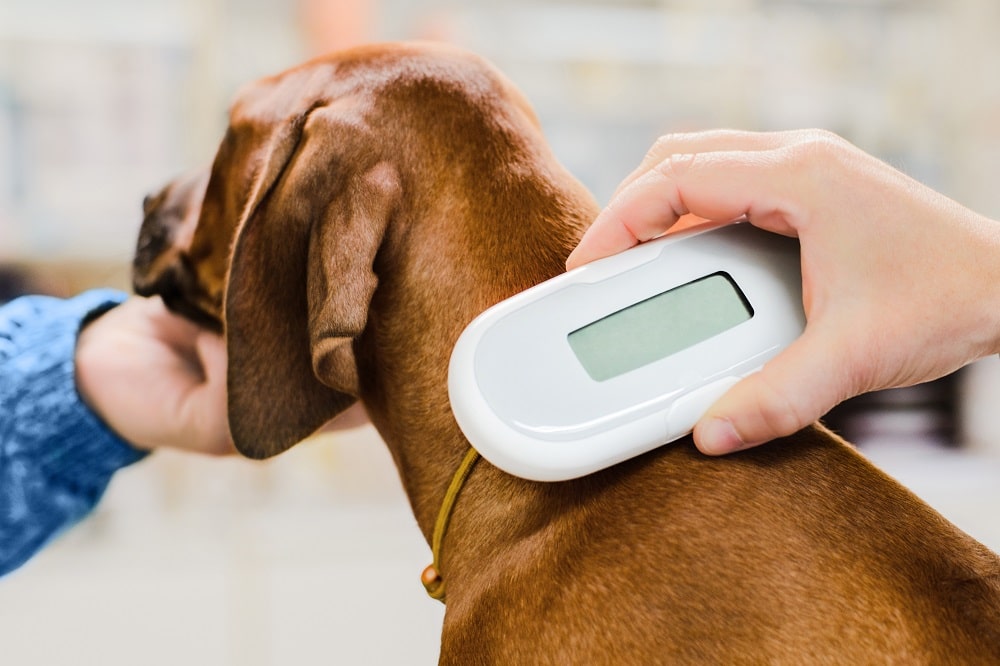Canada is a stunning country with a lot of unique cities, landscapes, and activities for tourists. If you’re looking for the perfect destination to visit in the summer (or winter!), the Great White North has it. I’m not just saying that because I’ve lived here for 37 years, either!
Whether you’re heading to Canada for a beautiful getaway or scoping out the country for someplace to move, there are some things you need to know, especially if you plan on bringing your dog along with you.
Read on to find our tips on how to safely (and legally) travel to Canada with your pup.

The 7 Tips for Traveling to Canada with Your Dog
1. Chat with Your Veterinary Team
Before you embark on your trip to Canada, you’ll want to make sure your pup is healthy enough to travel.
Schedule your appointment within 30 days of travel to discuss your pet’s health and ensure you have all the appropriate paperwork ready to go (see point 2).


2. Get Your Paperwork Together
Canada has different entrance requirements based on the age of your pup and your home country.
Owners from the United States or Mexico traveling with dogs older than 3 months must have a valid rabies vaccination certificate signed by their veterinarian. This certificate should describe your pet, provide proof of vaccination, and include documentation of the product name, lot expiration date, and lot number.
Puppies younger than 3 months who travel to Canada with their humans will need a certificate of health from their vets indicating that they are too young to receive the rabies vaccination. Owners traveling from rabies-free countries (e.g., Australia, Finland, Iceland, New Zealand, United Kingdom, etc.) with their 8-month or older pups can either provide proof of valid rabies vaccination or a valid Rabies Country-Freedom Certificate.
You will require these certificates when bringing your pet back into the United States or Mexico from Canada. Ensure your pup’s vaccination does not expire while you’re on vacation.
Note: Service dogs are exempt from these rules so long as the person to whom the dog is assigned is also traveling and has proper documentation of their dog’s certification.
3. Brush Up on Airline Requirements
If you’re traveling to Canada via air, know that every airline has its own set of policies and requirements for pet transportation.
Some airlines allow small dogs to travel alongside their humans in the cabin, while larger pups must be transported in the pressurized cargo hold. Like the border, some airlines will require health certificates issued within ten days of departure.
Contact the airline(s) you’ll be flying with to determine what requirements you must meet before traveling with your dog. Be sure to check out the airline’s carrier guidelines to ensure yours meets the size and ventilation requirements.


4. Understand Pet Food Rules
Travelers coming into Canada with pet food are subject to a few rules.1 They can only bring up to 20 kilograms of food as long as the import meets the following requirements:
- The food must originate from the United States and be commercially packaged.
- The food must be in the possession of the traveler at the time of entry into Canada.
- The dog who is eating the imported food must also be with the traveler at the time of entry.
- The imported food is fed only to the animal who is traveling into the country.
5. Understand Breed Restrictions
The Canadian province of Ontario passed legislation in 2005 banning pit bull-like dogs, including:2
However, the law also restricts dogs that have physical characteristics “substantially similar” to the above-identified breeds.


6. Plan, Plan, Plan
While spontaneity is half the fun of road trips and vacations, impulsivity doesn’t work when traveling with your pet.
Travel Arrangements
If you’re traveling by car, identify pet-friendly rest stops along the way. Make sure you’ve packed the essentials to keep you and your pup happy, such as food, water, poop waste bags, treats, and toys. If you’re traveling by air, familiarize yourself with pet relief area locations, especially if you have layovers.
The same applies to any ferry travel—for example, B.C. Ferries have onboard pet areas to help your pup feel comfortable and at home. These areas are equipped with trash cans, seating, waste bags, and a water bowl. Some pet areas on select ferries also have kennels and heating. Several of B.C. Ferries’ vessels even have expanded pet areas with designated upper areas on the passenger deck.
Accommodations
Not all hotels are pet-friendly, so pre-book your hotels as soon as possible. Double-check the pet rules and restrictions of your accommodations. Some hotels have restrictions on the size and number of pets you’re allowed to bring with you. Do not try to sneak your dog into any accommodations, as you may be forced to leave and charged a financial penalty.
If you prefer to rough it, dogs are welcome at most Parks Canada campgrounds. However, rules are always in place to keep them and other campers safe.


Activities
While Canada is pretty dog-friendly, not all activities you may be planning to do on your vacation will be dog-friendly.
Niagara Falls, Canada’s number one tourist destination, is pretty pup-friendly. Dogs are allowed in all public areas and on sidewalks and the Niagara Parkway as long as they’re well-behaved and picked up after. However, most attractions (e.g., Niagara City Cruises) do not allow pet dogs, though they will make exceptions for service animals.
Banff, a jewel of the Canadian Rocky Mountains, welcomes over four million visitors annually, and it’s one of the most dog-friendly vacation spots in Canada. Take your pup along with you on one of the many hikes in the park, rent a canoe or kayak and allow Fido to tag along, and check out one of the many pet-friendly patios in the area to eat after a long day of adventuring.
When planning your vacation, make a shortlist of the attractions you’d like to do while in the area. Visit the websites for these activities to determine which are and aren’t dog-friendly. You can then assess whether you feel comfortable leaving Fido at the hotel while you go out adventuring without them.
7. Prepare In Case of Separation
If, heaven forbid, your pup was to get separated from you during your vacation, do you have preparations in place to ensure a timely reunion? Your pup should have identification tags on them at all times, and the information on their tag should have your updated contact information.
For added security, all dogs who travel should also be microchipped. Never leave home without a copy of the microchip number on your person for reference. If your dog does get lost, contact the city’s local animal control officer. Provide them with their microchip number so you can be contacted directly when your pup is located.




Final Thoughts
Advance planning is critical to making any trip successful and enjoyable, but it’s essential when traveling with your canine family members. Knowing what is expected of you at the border crossing when you drive or through customs when you fly will not only ease some anxiety you have about traveling with your pet but also prevent any surprises from ruining your trip.
Canada is a truly beautiful country, and you, your family, and Fido will have an incredible time visiting!
Featured Image Credit: FedBul, Shutterstock
